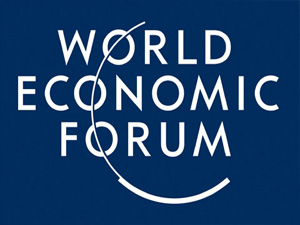



Date:30/01/12
 As the World Economic Forum draws to a close in Davos, Computing spoke to Gartner analyst Bettina Tratz-Ryan about the key technology trends that are coming out of this year's event.
As the World Economic Forum draws to a close in Davos, Computing spoke to Gartner analyst Bettina Tratz-Ryan about the key technology trends that are coming out of this year's event.
She described how business leaders and key officials have been discussing how technology has to play a role in improving urban environments, which will be achieved through gathering information, predictive analysis and cloud computing.
According to Tratz-Ryan, key economic resources such as food, energy, health, education and infrastructure all become a "nexus" in urban areas, and technology is being used within policy to improve how these urban environments are managed and how services are provided.
"We are seeing a lot about how technology can be used for information gathering, which can help make systems more predictive," explained Tratz-Ryan.
"For example, by collecting weather information, climate expectations can be used to anticipate shifts that might impact upon such things as agriculture, or even energy reliability for datacentres," she added.
"This is becoming more and more important, and is being used more thanks to the advantages of cloud computing.
Governments before might not have had the resources to build out architectures to cater for increased data analytics, but now they can look to the cloud for answers."
Tratz-Ryan also described how government and industry are looking to work together to improve cities and urban landscapes.
"The challenge of traffic, energy, resources and healthcare is huge for governments, and so what we are going to see is a shared model between some of the government operation centres that are collecting information and IT service providers," she said.
"For example, governments might look to work with companies such as Google, which could use profiles on citizens in certain areas who may be having issues with healthcare, crime and other urban resources."
However, this is also likely to spark concern about privacy among citizens.
"Privacy and security are also playing a big role this year," said Tratz-Ryan.
"There have to be policies on governance in place to make this work. It has to be clear who owns the data, who is accessing it, and on what levels the information can be distributed for new services."
Source: Computing
World Economic Forum: Governments should collect information to improve urban areas
 As the World Economic Forum draws to a close in Davos, Computing spoke to Gartner analyst Bettina Tratz-Ryan about the key technology trends that are coming out of this year's event.
As the World Economic Forum draws to a close in Davos, Computing spoke to Gartner analyst Bettina Tratz-Ryan about the key technology trends that are coming out of this year's event.She described how business leaders and key officials have been discussing how technology has to play a role in improving urban environments, which will be achieved through gathering information, predictive analysis and cloud computing.
According to Tratz-Ryan, key economic resources such as food, energy, health, education and infrastructure all become a "nexus" in urban areas, and technology is being used within policy to improve how these urban environments are managed and how services are provided.
"We are seeing a lot about how technology can be used for information gathering, which can help make systems more predictive," explained Tratz-Ryan.
"For example, by collecting weather information, climate expectations can be used to anticipate shifts that might impact upon such things as agriculture, or even energy reliability for datacentres," she added.
"This is becoming more and more important, and is being used more thanks to the advantages of cloud computing.
Governments before might not have had the resources to build out architectures to cater for increased data analytics, but now they can look to the cloud for answers."
Tratz-Ryan also described how government and industry are looking to work together to improve cities and urban landscapes.
"The challenge of traffic, energy, resources and healthcare is huge for governments, and so what we are going to see is a shared model between some of the government operation centres that are collecting information and IT service providers," she said.
"For example, governments might look to work with companies such as Google, which could use profiles on citizens in certain areas who may be having issues with healthcare, crime and other urban resources."
However, this is also likely to spark concern about privacy among citizens.
"Privacy and security are also playing a big role this year," said Tratz-Ryan.
"There have to be policies on governance in place to make this work. It has to be clear who owns the data, who is accessing it, and on what levels the information can be distributed for new services."
Source: Computing
Views: 1307
©ictnews.az. All rights reserved.Similar news
- Mobile operators of national market to reduce roaming tariffs
- Iran vows to unplug Internet
- China Targeting Telecoms in Corruption Probe
- Bangladesh to use electronic voting system for next elections
- Philippine IT sector to launch five-year digital strategy plan
- Russian Premier Vladimir Putin meets ITU Secretary-General Hamadoun Touré
- US lawmakers propose to regulate use of geolocation data
- Unlimited mobile data plans dying as telcos gear up for cloud future
- Europe at risk of falling behind US and Asia on 4G use
- Netherlands first to regulate on net neutrality
- Korean Co Takes Aim At Display Patents
- Regulators, Banks Look for IT Hires After Breakdowns
- Electron transactions spreading
- Schools in remote rural areas will connect to the single database via network without SIM
- Obama to Personally Tweet From Twitter Account





















